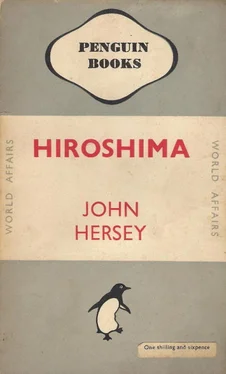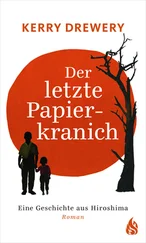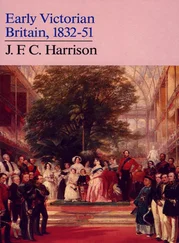John Hersey - Hiroshima
Здесь есть возможность читать онлайн «John Hersey - Hiroshima» весь текст электронной книги совершенно бесплатно (целиком полную версию без сокращений). В некоторых случаях можно слушать аудио, скачать через торрент в формате fb2 и присутствует краткое содержание. Город: London, Год выпуска: 1946, Издательство: Penguin Books, Жанр: История, на английском языке. Описание произведения, (предисловие) а так же отзывы посетителей доступны на портале библиотеки ЛибКат.
- Название:Hiroshima
- Автор:
- Издательство:Penguin Books
- Жанр:
- Год:1946
- Город:London
- ISBN:нет данных
- Рейтинг книги:4 / 5. Голосов: 1
-
Избранное:Добавить в избранное
- Отзывы:
-
Ваша оценка:
- 80
- 1
- 2
- 3
- 4
- 5
Hiroshima: краткое содержание, описание и аннотация
Предлагаем к чтению аннотацию, описание, краткое содержание или предисловие (зависит от того, что написал сам автор книги «Hiroshima»). Если вы не нашли необходимую информацию о книге — напишите в комментариях, мы постараемся отыскать её.
Hiroshima — читать онлайн бесплатно полную книгу (весь текст) целиком
Ниже представлен текст книги, разбитый по страницам. Система сохранения места последней прочитанной страницы, позволяет с удобством читать онлайн бесплатно книгу «Hiroshima», без необходимости каждый раз заново искать на чём Вы остановились. Поставьте закладку, и сможете в любой момент перейти на страницу, на которой закончили чтение.
Интервал:
Закладка:
Dr. Fujii had been relatively idle for about a month because in July, as the number of untouched cities in Japan dwindled and as Hiroshima seemed more and more inevitably a target, he began turning patients away, on the ground that in case of a fire raid he would not be able to evacuate them. Now he had only two patients left—a woman from Yano, injured in the shoulder, and a young man of twenty-five recovering from burns he had suffered when the steel factory near Hiroshima in which he worked had been hit. Dr. Fujii had six nurses to tend his patients. His wife and children were safe; his wife and one son were living outside Osaka, and another son and two daughters were in the country on Kyushu. A niece was living with him, and a maid and a manservant. He had little to do and did not mind, for he had saved some money. At fifty, he was healthy, convivial, and calm, and he was pleased to pass the evenings drinking whiskey with friends, always sensibly and for the sake of conversation. Before the war, he had affected brands imported from Scotland and America; now he was perfectly satisfied with the best Japanese brand, Suntory.
Dr. Fujii sat down cross-legged in his underwear on the spotless matting of the porch, put on his glasses, and started reading the Osaka Asahi . He liked to read the Osaka news because his wife was there. He saw the flash. To him—faced away from the centre and looking at his paper—it seemed a brilliant yellow. Startled, he began to rise to his feet. In that moment (he was 1,550 yards from the centre), the hospital leaned behind his rising and, with a terrible ripping noise, toppled into the river. The Doctor, still in the act of getting to his feet, was thrown forward and around and over; he was buffeted and gripped; he lost track of everything, because things were so speeded up; he felt the water.
Dr. Fujii hardly had time to think that he was dying before he realized that he was alive, squeezed tightly by two long timbers in a V across his chest, like a morsel suspended between two huge chop-sticks—held upright, so that he could not move, with his head miraculously above water and his torso and legs in it. The remains of his hospital were all around him in a mad assortment of splintered lumber and materials for the relief of pain. His left shoulder hurt terribly. His glasses were gone.
Father Wilhelm Kleinsorge, of the Society of Jesus, was, on the morning of the explosion, in rather frail condition. The Japanese wartime diet had not sustained him, and he felt the strain of being a foreigner in an increasingly xenophobic Japan; even a German, since the defeat of the Fatherland, was unpopular. Father Kleinsorge had, at thirty-eight, the look of a boy growing too fast—thin in the face, with a prominent Adam’s apple, a hollow chest, dangling hands, big feet. He walked clumsily, leaning forward a little. He was tired all the time. To make matters worse, he had suffered for two days, along with Father Cieslik, a fellow-priest, from a rather painful and urgent diarrhoea, which they blamed on the beans and black ration bread they were obliged to eat. Two other priests then living in the mission compound, which was in the Nobori-cho section—Father Superior LaSalle and Father Schiffer—had happily escaped this affliction.
Father Kleinsorge woke up about six the morning the bomb was dropped, and half an hour later—he was a bit tardy because of his sickness—he began to read Mass in the mission chapel, a small Japanese-style wooden building which was without pews, since its worshippers knelt on the usual Japanese matted floor, facing an altar graced with splendid silks, brass, silver, and heavy embroideries. This morning, a Monday, the only worshippers were Mr. Takemoto, a theological student living in the mission house; Mr. Fukai, the secretary of the diocese; Mrs. Murata, the mission’s devoutly Christian housekeeper; and his fellow-priests. After Mass, while Father Kleinsorge was reading the Prayers of Thanksgiving, the siren sounded. He stopped the service and the missionaries retired across the compound to the bigger building. There, in his room on the ground floor, to the right of the front door, Father Kleinsorge changed into a military uniform which he had acquired when he was teaching at the Rokko Middle School in Kobe and which he wore during air-raid alerts.
After an alarm, Father Kleinsorge always went out and scanned the sky, and in this instance, when he stepped outside, he was glad to see only the single weather plane that flew over Hiroshima each day about this time. Satisfied that nothing would happen, he went in and breakfasted with the other Fathers on substitute coffee and ration bread, which, under the circumstances, was especially repugnant to him. The Fathers sat and talked awhile, until, at eight, they heard the all-clear. They went then to various parts of the building. Father Schiffer retired to his room to do some writing. Father Cieslik sat in his room in a straight chair with a pillow over his stomach to ease his pain, and read. Father Superior LaSalle stood at the window of his room, thinking. Father Kleinsorge went up to a room on the third floor, took off all his clothes except his underwear, and stretched out on his right side on a cot and began reading his Stimmen der Zeit .
After the terrible flash—which, Father Kleinsorge later realized, reminded him of something he had read as a boy about a large meteor colliding with the earth—he had time (since he was 1,400 yards from the centre) for one thought: A bomb has fallen directly on us. Then, for a few seconds or minutes, he went out of his mind.
Father Kleinsorge never knew how he got out of the house. The next things he was conscious of were that he was wandering around in the mission’s vegetable garden in his underwear, bleeding slightly from small cuts along his left flank; that all the buildings round about had fallen down except the Jesuits’ mission house, which had long before been braced and double-braced by a priest named Gropper, who was terrified of earthquakes; that the day had turned dark; and that Murata- san , the housekeeper, was nearby, crying over and over, “ Shu Jesusu, awaremi tamai! Our Lord Jesus, have pity on us!”
On the train on the way into Hiroshima from the country, where he lived with his mother, Dr. Terafumi Sasaki, the Red Cross Hospital surgeon, thought over an unpleasant nightmare he had had the night before. His mother’s home was in Mukaihara, thirty miles from the city, and it took him two hours by train and tram to reach the hospital. He had slept uneasily all night and had wakened an hour earlier than usual, and, feeling sluggish and slightly feverish, had debated whether to go to the hospital at all; his sense of duty finally forced him to go, and he had started out on an earlier train than he took most mornings. The dream had particularly frightened him because it was so closely associated, on the surface at least, with a disturbing actuality. He was only twenty-five years old and had just completed his training at the Eastern Medical University, in Tsingtao, China. He was something of an idealist and was much distressed by the inadequacy of medical facilities in the country town where his mother lived. Quite on his own, and without a permit, he had begun visiting a few sick people out there in the evenings, after his eight hours at the hospital and four hours’ commuting. He had recently learned that the penalty for practicing without a permit was severe; a fellow-doctor whom he had asked about it had given him a serious scolding. Nevertheless, he had continued to practice. In his dream, he had been at the bedside of a country patient when the police and the doctor he had consulted burst into the room, seized him, dragged him outside, and beat him up cruelly. On the train, he just about decided to give up the work in Mukaihara, since he felt it would be impossible to get a permit, because the authorities would hold that it would conflict with his duties at the Red Cross Hospital.
Читать дальшеИнтервал:
Закладка:
Похожие книги на «Hiroshima»
Представляем Вашему вниманию похожие книги на «Hiroshima» списком для выбора. Мы отобрали схожую по названию и смыслу литературу в надежде предоставить читателям больше вариантов отыскать новые, интересные, ещё непрочитанные произведения.
Обсуждение, отзывы о книге «Hiroshima» и просто собственные мнения читателей. Оставьте ваши комментарии, напишите, что Вы думаете о произведении, его смысле или главных героях. Укажите что конкретно понравилось, а что нет, и почему Вы так считаете.












